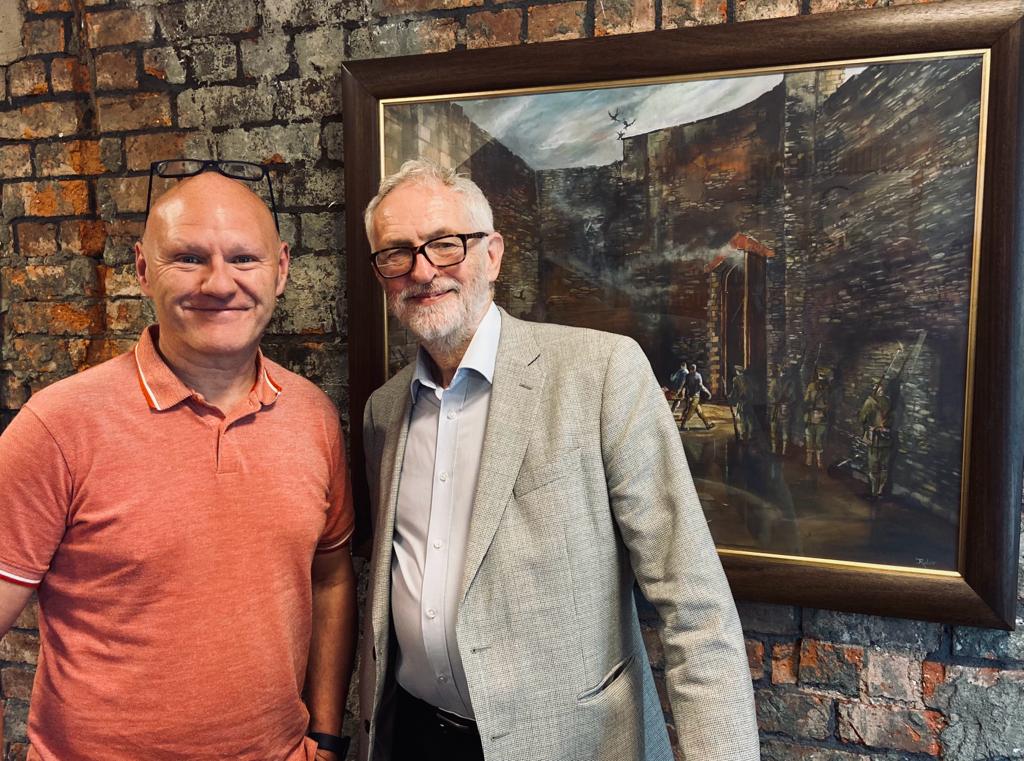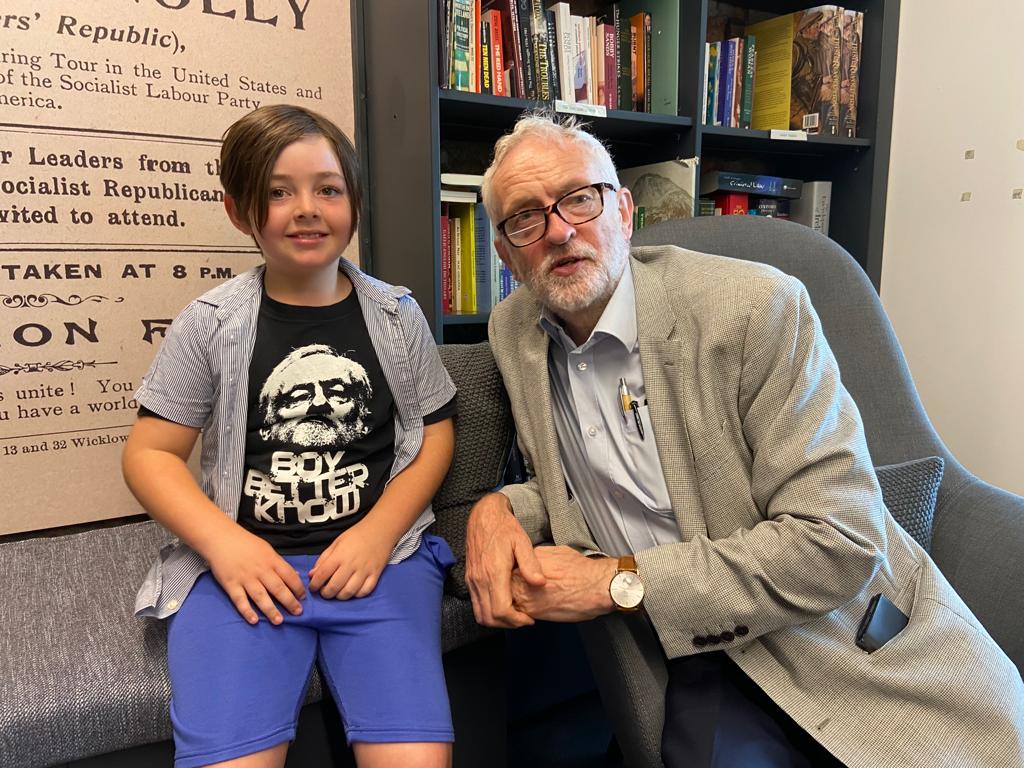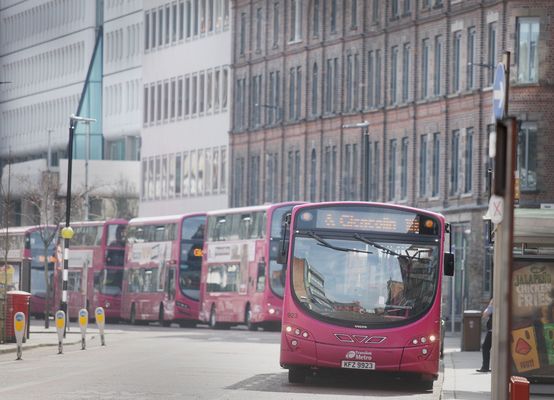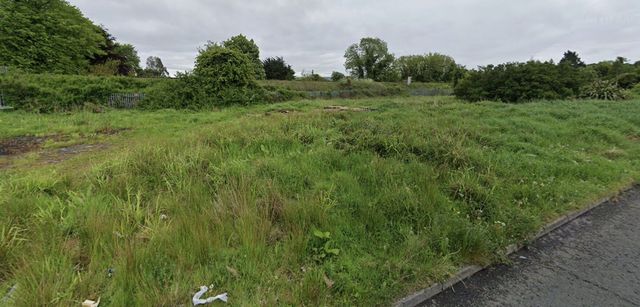TONIGHT Jeremy Corbyn will be giving a talk in St Mary's University College during this year's Féile an Phobail.
Ahead of the talk the former Labour Party leader sat down with the Andersonstown News and spoke about his long interest in Ireland which developed very early in his life and his work as a campaigner for peace, justice and reconciliation on the island.
Speaking of his earliest experiences of Ireland the Islington North MP said his interest in Ireland came from his childhood.
"At school I was not a particularly successful student but what I was interested in was maps and history. I became interested in Ireland through learning about the geography. I went to Galway when I was about eight with my mum and dad, to Galway and Dublin.
"I was fascinated by the difference and the friendliness of the people. Later on I became more aware of things. History teaching in school was appalling and I asked my mum ‘why do they keep talking about the potato famine?’ and she gave me a book ‘The Great Hunger’ by Cecil Woodham-Smith and I became interested in Irish history and since then I’ve been really interested in Irish culture, language, music and history.”
Jeremy said one of the things which has always interested him regarding Ireland is the island's prodigious output of writers, poets and thinkers.
“What always fascinates me is why does Ireland – with its relatively small population – produce so many totally brilliant writers and poets; more per head of the population than anywhere else in the world. When I met Michael D Higgins I asked him that question and he said that’s a very interesting and profound question and I have a book that may help you with the answer and it was a book of poetry by Seamus Heaney.”
FÁILTE: West Belfast MP Paul Maskey with Jeremy Corbyn today
A keen supporter of the Good Friday Agreement, Jeremy Corbyn said at the time. "We look forward to peace, hope and reconciliation in Ireland in the future." Asked whether 25 years after the Agreement he believed that had been fulfilled he said: “They’ve not all been fulfilled, but the Good Friday Agreement is a very big staging post. I remember coming here in 1983 when I’d just been elected. There were military and checkpoints everywhere. There was terrible poverty. I visited Divis Flats and other places and there was this sense of a city under siege. Then there was also the restrictions on civil liberties, through the Diplock courts, the travel ban, the ban on the Irish language. It was a terrible time but it’s not like that now.
"A whole generation born since 1998 have a totally different outlook and experience of life and aren’t totally bound by their parents’ politics or religion. I think things have changed massively but it is a staging point and that’s what I’m very looking forward to speaking with people about tonight."
Jeremy Corbyn has always been a great friend to Ireland.
— John Finucane MP (@johnfinucane) August 3, 2023
It was great to welcome him back to Belfast today ahead of his talk tonight at Féile an Phobail in St Mary’s. pic.twitter.com/4j394zszcM
A long-time campaigner for justice in Ireland the former leader of the Labour Party said after Bloody Sunday he had been wrongly arrested and charged with assaulting a policemen following a protest against the massacre and by a twist of history, was acquitted through the help of famed civil rights lawyer, Michael Mansfield.
“Bloody Sunday was the most horrific event. I was working for the National Union of Tailor’s and Garment Workers at the time. We were shocked by Bloody Sunday and we had a march from Kilburn to central London to present a coffin to Downing Street.
"The police pushed us back and I was arrested and charged with assaulting of a police officer, which I didn’t do. I was then found guilty in court and we appealed it and I was given a volunteer barrister who turned out to be Michael Mansfield [represented Bloody Sunday families and the Birmingham Six and Guildford Four] and Michael took on the case and they threw out the case.
“I constantly called for a proper inquiry into Bloody Sunday and I remember when David Cameron came out and gave the apology for Bloody Sunday in parliament and I thought 13 people died and we’ve had decades of the families campaigning for justice and it’s a testament to the strength of those families and the community."
We were delighted to welcome @jeremycorbyn who gave an outstanding Annual Bloody Sunday Lecture. Minty Thompson and @tonydutchdoc presented @jeremycorbyn with a special ‘You Are Now Entering Free Derry’ plaque which has been emblazoned with the Palestinian colours 🇵🇸 pic.twitter.com/MDwpcgIKk7
— Museum of Free Derry (@MuseumFreeDerry) January 29, 2022
Asked on his opinion of the British government's current extremely controversial Legacy Bill and Labour's pledge to scrap the legislation should it form the next government Jeremy said: “I hope they stick to that pledge and I think the government should listen to all the political parties in Ireland because a process of peace is also a process of truth as well as reconciliation and there has to be that truth. Reckoning with the past is very important for building a cultural strength for the future, but I’m hoping to be in the next parliament to be part of that process.”
JEREMY CORBYN MP: THE CHOICE FOR IRELAND
— Féile an Phobail (@FeileBelfast) August 3, 2023
Doors for tonight’s Jeremy Corbyn event at St Mary’s University College will open at 6pm.
We advise you to arrive early. pic.twitter.com/71h8GchnC9
On his talk tonight on James Connolly and Ireland's future Jeremy said James Connolly was an enormous inspiration for him and he is looking forward to giving his talk
"You can’t talk about any subject without understanding the historical context of it. You have to put everything in context." he said.
“What I’m trying to do tonight is frame what I say in terms of Irish history. Connolly to me is an enormous inspiration. Just imagine had Connolly and the other fifteen not been executed, just imagine the contribution they would have made to Ireland – the writings Connolly would have done.
"To me, it’s his vision of Ireland, a socialist Ireland, a workers' state of Ireland. I think he was a wonderful guy and meeting here [in Áras Uí Chonghaile] seeing the pictures, it brings him to life and history needs to be brought alive for the next generation to understand the suffering others went through.
"My constituency of Islington North is right by Pentonville Prison where Roger Casement was executed and near former Holloway Prison where Constance Markievicz was imprisoned. We have a huge Irish connection in our area and it’s a real honour to be here today and a real honour to be invited to speak tonight.”
'The Choices for Ireland' with Jeremy Corbyn will take place tonight at St Mary's University College at 7pm.







